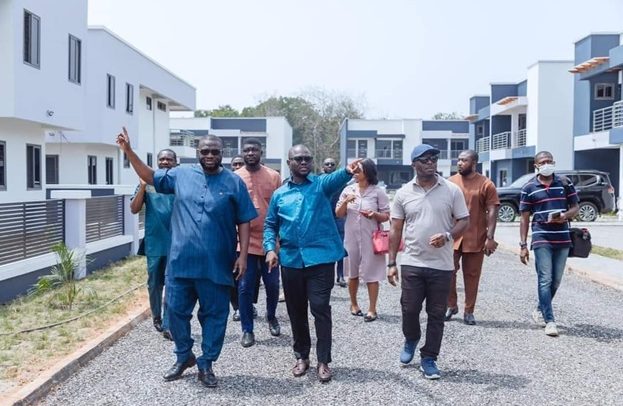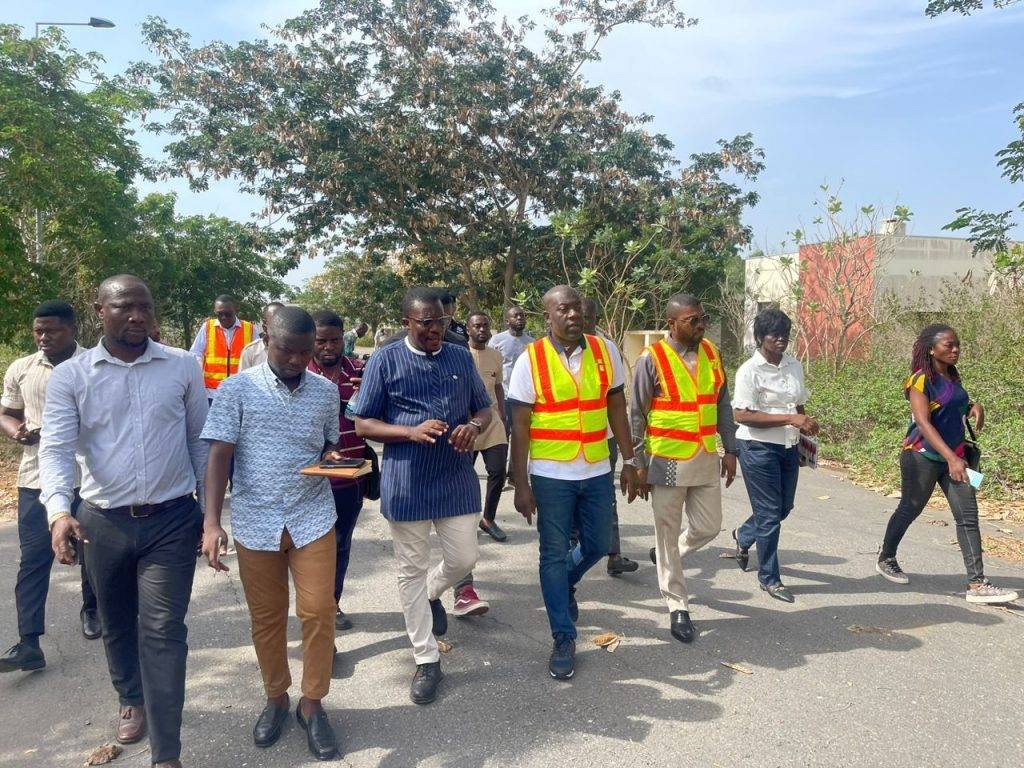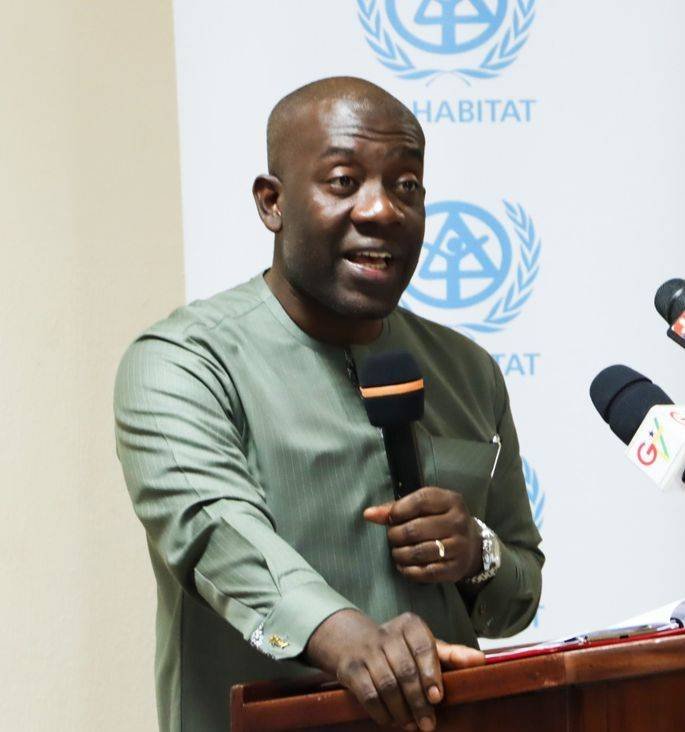
The Minister for Works and Housing, Francis Asenso-Boakye, has supervised the commencement of upgrading works, which include the construction of primary and secondary drains, access roads, solid waste management facilities and security lights at Alogboshie, a surburb of Accra.

Under the auspices of the Greater Accra Resilient and Integrated Development (GARID) Project, the provision of these infrastructural facilities is the beginning of a transformative journey for Alogboshie and other two low-income settlements within the Greater Accra Region.
Performing the groundbreaking ceremony yesterday, the sector Minister said the facilities are part of government’s efforts to tackle and drastically mitigate the perennial flooding challenges in the communities, which have been identified as flood prone areas.
Asenso-Boakye disclosed that similar works will also commence at Akweteyman and Nima, in fulfilment of government’s commitment to enhance access to basic social infrastructure and most importantly, reducing the vulnerability of priority low-income communities within the Greater Accra region, to flooding and other natural disasters.
Following the construction of storm drains from Nima-Paloma area, through Asylum Down to the Odaw River Chanel, as well as the repair of the broken sections of the Odaw Channel at Abofu, which spans from a section of Achimota Overhead Bridge, to the N1 Overhead Bridge, Asenso-Boakye said good strides are being made to resettle project-affected persons.

“Similarly, resettlement of project-affected persons by the proposed reconstruction of Kaneshie storm drains will commence in January following which works will proceed,” the Minister added.
The GARID Project Coordinator, Dr. Ohene Sarfoh, appealed to Ghanaians to support government’s flood control measures by changing their behaviour towards solid waste disposal, choice of building locations and other climate-resilient flood mitigation measures.
He stressed that, the implementation of the GARID Project’s interventions and all other Government’s flood mitigation measures will not succeed if such behaviour and underlying attitudes do not change.
Mr Francis Asenso-Boakye has, meanwhile, presented state-of-the-art equipment to beneficiary institutions namely, Ghana Hydrological Authority, Ghana Meteorological Agency and the Water Resources Commission, for the establishment of the Accra Flood Early Warning System (FEWS).
The Early Warning System will provide advanced notification of impending floods to residents in flood-prone communities so they can take steps to protect their lives and properties ahead of an impending flood.
Presenting the equipment to the institutions, Asenso-Boakye said the procurement and installation of the equipment marks the first step in the country’s journey toward a safer, more resilient Greater Accra Region, noting that the initiative is a giant stride towards mitigating the devastating impact of floods on residents of the Greater Accra Region.

Explaining how the system works, the sector Minister said the equipment, which forms building block of the FEWS, will collect and transmit data after installation on the locations, speeds and amount of rain, as well as the levels, turbulence of rain run-offs in primary drains.
The data will be transmitted to a platform where the underlying programming and modelling will generate extrapolations for the immediate and later circumstances, also known as the nowcasts and forecasts, to estimate the probability of flooding in specific communities, ahead of the possible occurrence of floods.
This will culminate in the issuance of advanced alerts to residents in specific at-risk communities, thereby, affording vulnerable populations time, ahead of imminent floods, to secure their valuables, evacuate to safer grounds, and protect their loved ones.

Asenso-Boakye disclosed that a service provider will be engaged to set up the Flood Early Warning System platform and operationalise it for three years.
The Service Provider is required to also maintain the equipment and overall system in addition to training nominated staff of the three institutions, together with the National Disaster Management Organisation (NADMO) to be able to take over and run the FEWS after the closure of the contract of the Service Provider.

FEWS is part of the holistic flood mitigation approach adopted by the Government to curb flooding in the Greater Accra Region.
It includes other structural measures of dredging the Odaw, reconstruction of three bridges, and the broken section of the Odaw Drain at Achimota, expansion of critical tributaries of Nima and Kaneshie drains and reconfiguration of poorly engineered sections at the Kwame Nkrumah Circle section of the drain.
The post Works & Housing ministry addressing floods challenges in Accra appeared first on The Chronicle News Online.
Read Full Story



















Facebook
Twitter
Pinterest
Instagram
Google+
YouTube
LinkedIn
RSS